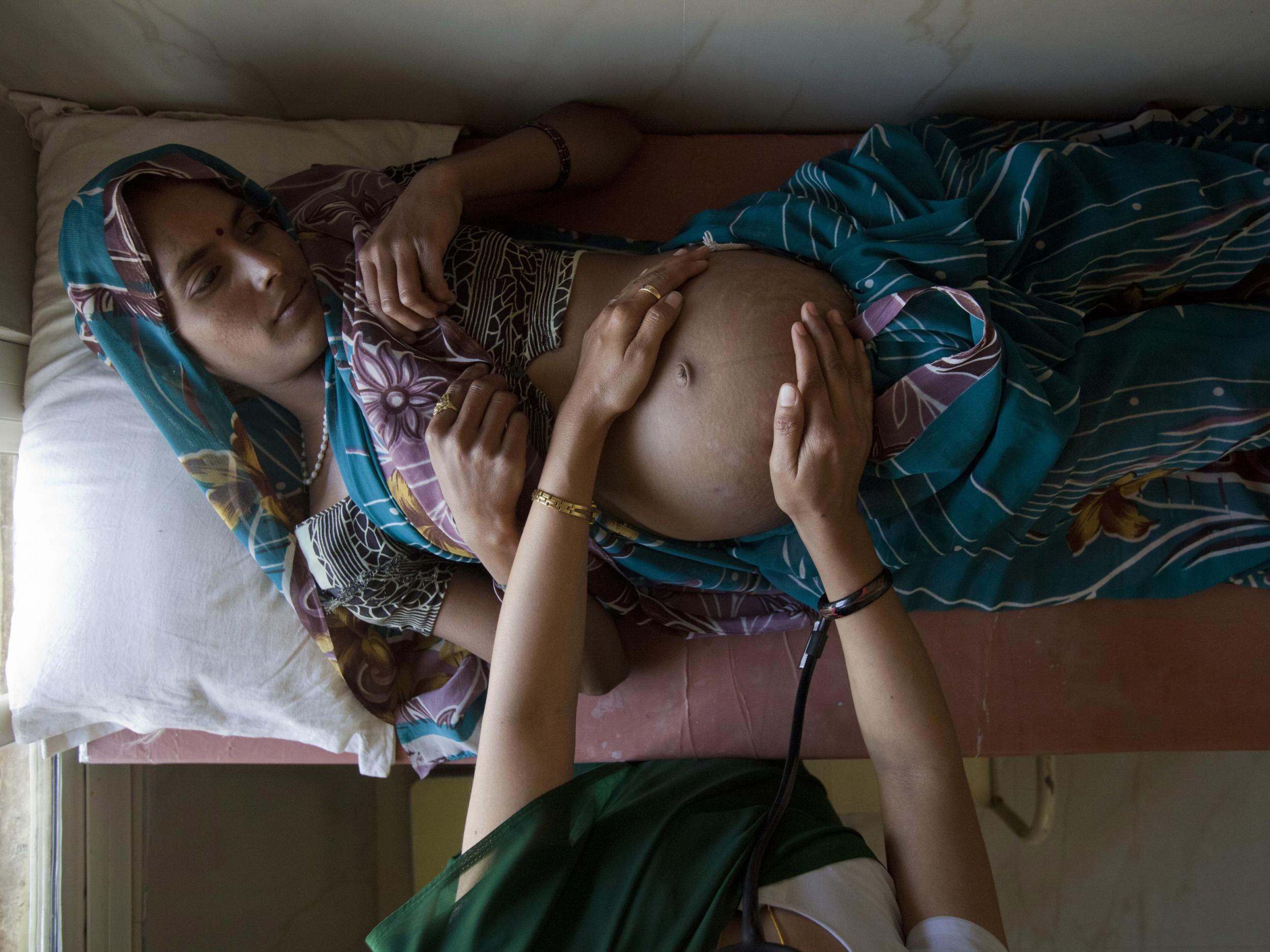Indian Government advises pregnant women to 'avoid thinking about sex'
New official booklet also advises pregnant women to avoid eating meat and eggs

Pregnant women should shun “impure thoughts” about sex and avoid eating meat and eggs, according to advice issued by the Indian government.
Doctors warned the “unscientific and irrational” recommendations, published in an official new booklet titled Mother and Child Care, may put vulnerable women at risk.
India has one of the world’s highest rates of maternal mortality, with 174 of every 100,000 pregnancies resulting in the mother's death in 2015.
Many of these deaths are caused by malnutrition and iron deficiency, conditions which can be improved through eating protein-rich meals including meat and dairy, which are widely accepted to be safe during pregnancy – as is sex.
“Pregnant women should detach themselves from desire, anger, attachment, hatred and lust,” reads the booklet, released last week by the Central Council for Research in Yoga and Naturopathy, a part of the government's ministry that promotes traditional and alternative medicine.
It also says pregnant women should look at pictures of beautiful babies to benefit the foetus.
“The government is doling out unscientific and irrational advice, instead of ensuring that poor pregnant women get to eat a nutritious, high-protein diet,” said gynecologist Arun Gadre, who is based in the western Indian city of Pune but works in rural areas.
Women are often the last to eat or receive health care in traditionally patriarchal Indian households.
Maternal mortality rates have improved since five years ago, when there were 205 maternal deaths per 100,000 live births, but are still far worse than China's 27 per 100,000 or the United States' 14 per 100,000, according to UNICEF.
The traditional medicine minister defended the booklet as containing “wisdom accumulated over many centuries,” and said it did not advise specifically against sex, only against all thoughts of desire or lust.
“The booklet puts together relevant facts culled out from clinical practice in the fields of yoga and naturopathy,” Minister Shripad Naik said.
The advice is unlikely to be followed at the many government-run health centers across India. They are operated by the Health Ministry, which has had past conflicts with the traditional medicine ministry and follows more scientific practices.
The booklet is the latest push for vegetarianism by Prime Minister Narendra Modi's Hindu-nationalist government, which already advocates avoiding beef and strictly limits the transportation and slaughter of cows, which are considered sacred by Hindus.
But the latest homily to pregnant women has outraged the medical community.
“This is a national shame. If the calories of expectant mothers are further reduced by asking them to shun meat and eggs, this situation will only worsen,” Gadre said. “This is absurd advice to be giving to pregnant women in a country like India.”
About a third of India's 1.3 billion people struggle to live on less than $2 (£1.60) a day. Many are lucky to eat more than one full meal a day, and women often give their portions up to their hungry children or husbands.
Malnourished women are more likely to give birth to underweight babies, who then are in danger of being “stunted” or not growing to their full height and weight. A full 48 percent of all Indian children under the age of 5 are considered stunted, according to a 2015 report by UNICEF.
“Undernourished girls grow into undernourished women. Married by their families while still in their teens, these girls become pregnant by the time they are 17 or 18, when their bodies have not matured enough to safely deliver a child,” said Amit Sengupta, a physician and health care activist with the Delhi Science Forum, a public advocacy organization.
He said the government's advice to pregnant women betrayed “backward thinking” and hostility toward evidence-based science.
“This kind of advice is detrimental to women's health,” he said.
Associated Press
Join our commenting forum
Join thought-provoking conversations, follow other Independent readers and see their replies
Comments